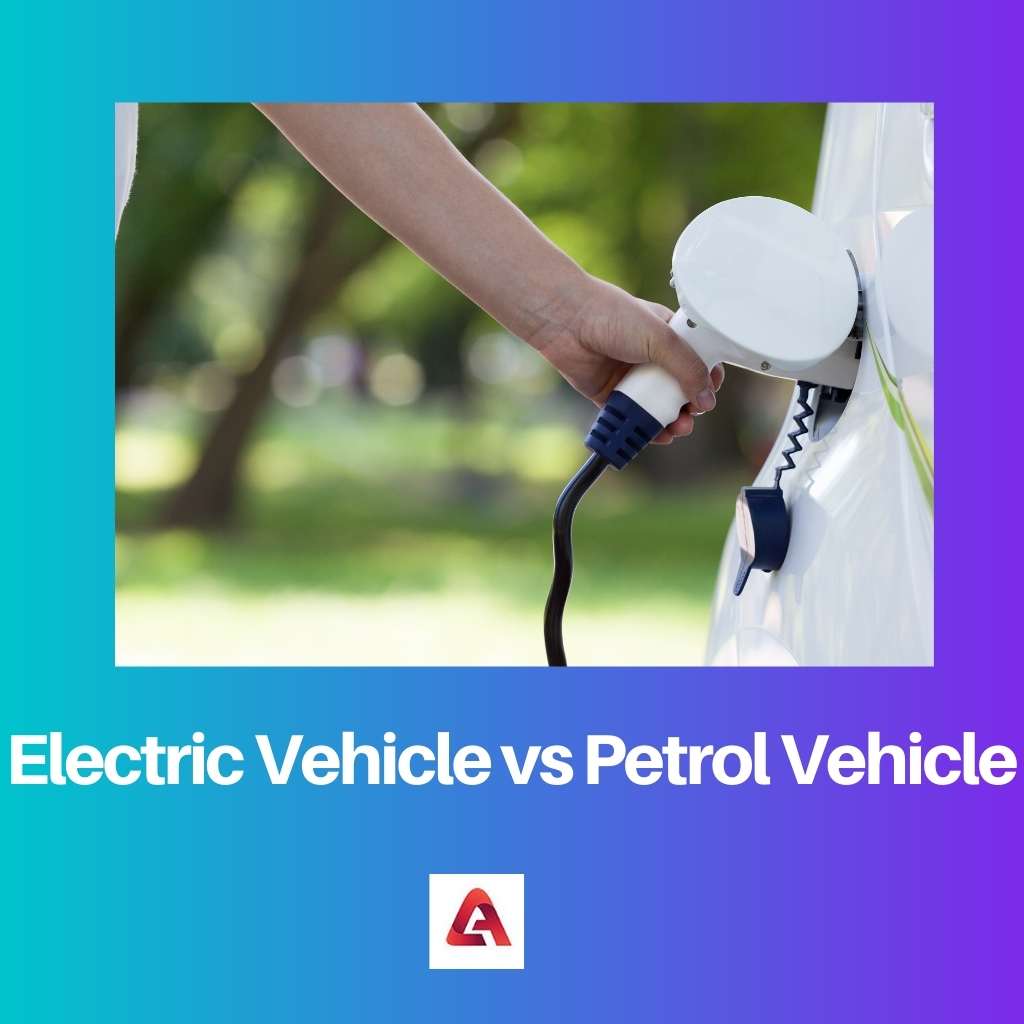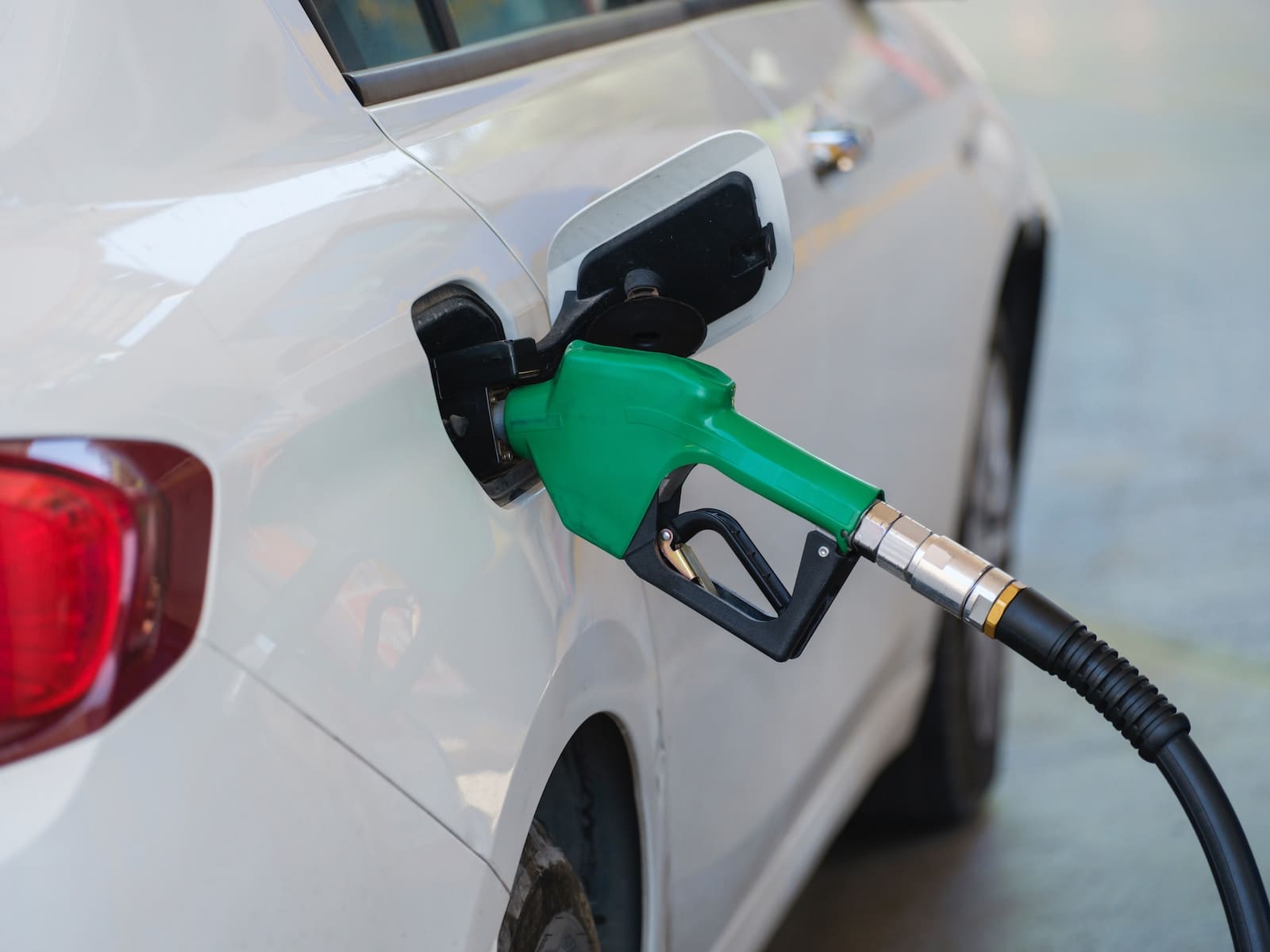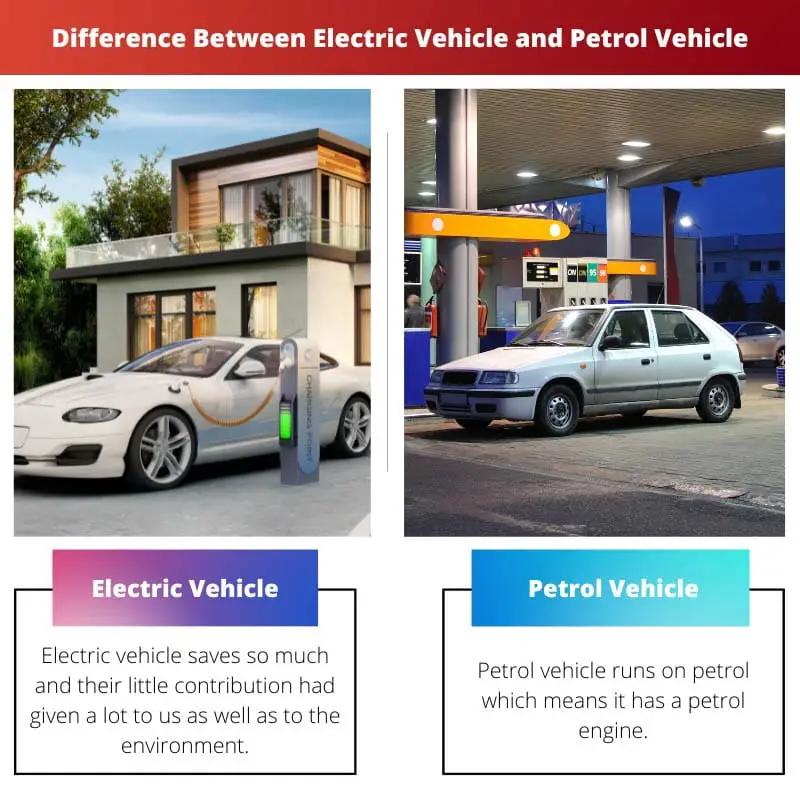As the generation is evolving, the change in demand as well as in lifestyle also changing. Likewise, the people are promoting themselves to bigger and more expensive automobiles for their features and the criteria to fulfill the demands.
Vehicles with petrol engines and electric engines are also part of this race.
Where the use of petrol vehicle is low in demand nowadays and the welcoming of an electric vehicle is upcoming due to its benefits, this will improve the way of living and the degrading environment.
Key Takeaways
- Electric vehicles produce zero tailpipe emissions, producing cleaner air quality than petrol vehicles.
- Electric vehicles have lower operating costs due to fewer moving parts and cheaper energy sources than petrol vehicles.
- Electric vehicles offer a smoother, quieter driving experience with instant torque, which petrol vehicles cannot match.
Electric Vehicle vs Petrol Vehicle
An electric vehicle uses electricity from a battery drawn by one or more electric motors to run. It can be charged by an external source. A petrol vehicle uses a spark-ignited internal combustion engine that sends its power to the wheels through a gearbox. It converts conventional fuel(petrol) into energy.

Electric vehicle runs on electricity which may be partially or fully powered on electric power. It has a low running cost as they have fewer moving parts for maintenance and are friendly to the environment because no fuel usage is there.
So nowadays, people, as well as the government, are motivating the country to spend their money on electric vehicles over petrol vehicles.
The vehicles which run on internal combustion consuming gasoline are known as petrol vehicles. The internal combustion system burns the petrol and converts the released energy(from burning gasoline) into mechanical energy to make the vehicle work.
However, they cause less pollution and are less expensive than diesel and other vehicles. And also have higher efficiency than electric vehicles.
Comparison Table
| Parameters of Comparison | Electric Vehicle | Petrol Vehicle |
|---|---|---|
| Budget | Low | High |
| Efficiency | Low | High |
| Acceleration | faster than a petrol vehicle | slower than an electric vehicle |
| Fossil Fuel | no fossil fuel is required | fossil fuel is required |
| Eco-friendly | it is eco-friendly | It is not eco-friendly |
What is Electric Vehicle?
Electric vehicle saves so much and their little contribution had given a lot to us as well as to the environment. It works on electricity instead of fuel which means less pollution and is eco-friendly to nature.
There are other types of electric vehicles also such as plug-in hybrid electric vehicles and fuel cell electric vehicles.
There is a rechargeable battery inside it which stores the electricity when it is plugged into the charge point and this powers an electric motor to turn the wheel in motion.
It can accelerate faster than petrol vehicles so they feel lighter to drive. It has many advantages like no fossil fuel burn (mentioned earlier), creates very little noise, can be charged at home under standard 120V – 240V on house plugs, etc.
Somehow, many pollution-related diseases increase the sale of electric vehicles as it teaches us the value of the environment and the benefits of electric vehicles.
Now the government is also searching for guidelines to motivate the use of electric vehicles to improve the status of the country as well as for the environment.
There are charging stations which are also known as electric vehicle chargers or EVSE (Electric vehicle supply equipment) supply electrical power.
These can only be charged with DC power. Some Electrical vehicles have AC to DC converter which allows them to use a DC charger.

What is Petrol Vehicle?
Petrol vehicle runs on petrol which means it has a petrol engine. The air/fuel mixture is ignited by a spark from a spark plug which rotates the engine and makes its mechanism work.
In short terms, an internal combustion engine is a heat engine that converts energy from the burning of petrol into mechanical energy to make the vehicle move.
There are components of gasoline vehicles such as the battery, which provides electricity to start the engine and power the vehicle. ECM (electronic control module) controls the fuel mixture, ignition timing, and emission stage.
The exhaust system channels exhaust gases from the engine out through the tailpipe and other components like fuel filler, fuel injection system, fuel line, fuel pump, internal combustion system, and transmission.
The use of petrol vehicles was initiated in the 20th century but nowadays other vehicles which run on diesel, gas, etc. are more in use because of higher efficiency and higher mileage than petrol vehicles.
These vehicles are cheaper than other vehicles. However, petrol vehicles produce less sound than diesel vehicles and also cost less. Many more models are available in petrol vehicles as compared to diesel vehicles.
They also emit less pollution and has low maintenance cost than diesel engines. Hence proved, it has pros as well as cons but nothing better than electric vehicles because this merit list of petrol vehicle can also be won by electric vehicles.

Main Differences Between Electric Vehicle and Petrol Vehicle
- The petrol vehicle has higher efficiency and mileage than electric vehicles which makes it better than others.
- Petrol vehicles use fuel to run that automobile but the quick utilization of petrol is quite challenging and hence the electric vehicle gains a point as it does not use fuel.
- The electric vehicle has a lighter engine and fast acceleration therefore it is lighter to use than a petrol vehicle.
- The electric vehicle has a rechargeable battery which can be charged by any charging station or even in house under 120V -240V while the petrol vehicle needs fuel to run and it would be only available in petrol stations.
- Petrol vehicle is a low maintenance vehicles than diesel ones but higher for electric vehicles as they don’t cost much.

- https://ieeexplore.ieee.org/abstract/document/5593864/
- https://ieeexplore.ieee.org/abstract/document/4140747/
- https://www.sciencedirect.com/science/article/pii/S0965856401000131
- https://www.sciencedirect.com/science/article/pii/S0301421507002534
